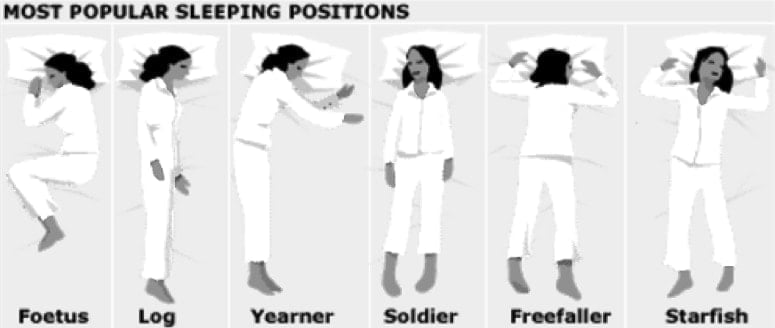
This website uses cookies to improve your experience. We'll assume you're ok with this, but you can opt-out if you wish. Read More
The Next Round: What happens after you change your drinking?

Mindfulness expert Andy Hix writes about sleeping and alcohol: How mindful sleeping can help your mindful drinking.
I got back from a stag do in Berlin at 2am last night and woke up at about 8.30. I feel depleted! Nine months ago, though, that would have been not far off a normal night for me – I used to turn the light off at 1am and wake up at 7.30am. My approach was to sleep as little as I could get away with. “Sleep when you’re dead!” was my mantra.
My view was challenged by something I read in Ariana Huffington’s book, Thrive. There was a whole chapter on the importance of sleep and how not getting enough reduces your emotional intelligence, self-regard, assertiveness, sense of independence, empathy, interpersonal relationships, positive thinking and impulse control. I knew it was important but I didn’t realise it was that important!
What really got me thinking were the studies she quotes of athletes who thought they were fine on six to six and a half hours sleep, but when they increased it to eight or nine hours their performance measurably improved.
So I gave it a go. I went to bed an hour to an hour and a half earlier, which basically just meant less time watching TV with my housemates, and I’ve never looked back. I used to wake up and think “I don’t want to get up!” It’s a horrible feeling not wanting to start the day because you’re tired. That just went. I now wake up feeling rested pretty much every day, and it’s great!
It increases my energy levels for the rest of the day so I no longer feel the need to pump myself with caffeine mid-morning or mid-afternoon. And another thing it’s made massive difference to, is my ability to concentrate, which I particularly notice during meditation. When I’m tired and I try to meditate my thoughts often become drifty and dreamlike. When I’m fully charged it’s much easier to be aware that I’ve become distracted.
The thing about going to bed earlier, like with many things in your routine, is that it’s easy to do and it’s easy not to do. The allure of one more episode from the box set, the dopamine hit that social media injects or the temptation to send a couple more emails, can seem hard to overcome. They’re the same things that stop people from reading books or meditating. Most of us have become instant-gratification addicts.
But it’s these small decision that you make on a daily basis to do or not do simple things, that add up to completely changing the way you feel and perform week to week, month to month. My advice would be to set your bedtime and then bring conscious awareness to the things that stop you from sticking to it. What stories do you tell yourself to justify staying up a “just a little bit later.”
Of course, once you’ve gone to bed, there’s the problem of actually going to sleep. Our minds are so hyperactive and over stimulated during the day, it’s little wonder many people find it hard to switch them off at night. I find it helpful to count my breaths coming in and out, up to ten and then back again. It’s a relaxing exercise that my mind soon loses interest in, and then I’m out for the count.
So if you don’t get eight hours sleep per night, try it. It might make you better at everything!
This website uses cookies to improve your experience. We'll assume you're ok with this, but you can opt-out if you wish. Read More
| Name | Domain | Purpose | Expiry | Type |
|---|---|---|---|---|
| wpl_user_preference | joinclubsoda.com | WP GDPR Cookie Consent Preferences. | 1 year | HTTP |
| PHPSESSID | www.tickettailor.com | PHP generic session cookie. | 55 years | HTTP |
| AWSALB | www.tickettailor.com | Amazon Web Services Load Balancer cookie. | 7 days | HTTP |
| YSC | youtube.com | YouTube session cookie. | 55 years | HTTP |
| Name | Domain | Purpose | Expiry | Type |
|---|---|---|---|---|
| VISITOR_INFO1_LIVE | youtube.com | YouTube cookie. | 6 months | HTTP |
| Name | Domain | Purpose | Expiry | Type |
|---|---|---|---|---|
| _ga | joinclubsoda.com | Google Universal Analytics long-time unique user tracking identifier. | 2 years | HTTP |
| sbjs_migrations | joinclubsoda.com | Sourcebuster tracking cookie | 55 years | HTTP |
| sbjs_current_add | joinclubsoda.com | Sourcebuster tracking cookie | 55 years | HTTP |
| sbjs_first_add | joinclubsoda.com | Sourcebuster tracking cookie | 55 years | HTTP |
| sbjs_current | joinclubsoda.com | Sourcebuster tracking cookie | 55 years | HTTP |
| sbjs_first | joinclubsoda.com | Sourcebuster tracking cookie | 55 years | HTTP |
| sbjs_udata | joinclubsoda.com | Sourcebuster tracking cookie | 55 years | HTTP |
| sbjs_session | joinclubsoda.com | SourceBuster Tracking session | Session | HTTP |
| Name | Domain | Purpose | Expiry | Type |
|---|---|---|---|---|
| mailchimp_landing_site | joinclubsoda.com | Mailchimp functional cookie | 28 days | HTTP |
| __cf_bm | tickettailor.com | Generic CloudFlare functional cookie. | Session | HTTP |
| NID | google.com | Google unique id for preferences. | 6 months | HTTP |
| Name | Domain | Purpose | Expiry | Type |
|---|---|---|---|---|
| _ga_10XZMT03ZM | joinclubsoda.com | --- | 2 years | --- |
| AWSALBCORS | www.tickettailor.com | --- | 7 days | --- |
| cf_clearance | tickettailor.com | --- | 1 year | --- |
| VISITOR_PRIVACY_METADATA | youtube.com | --- | 6 months | --- |
Join Club Soda for 10% off your first order of drinks for UK delivery. Plus get our latest news and special offers for members to choose better drinks, change your drinking and connect with others.
If you get an error message with this form, you can also sign up at eepurl.com/dl5hPn